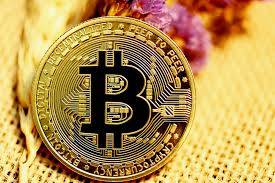Bitcoin: A Decentralized Digital Currency
Bitcoin is a decentralized digital currency that was created in 2009 by an unknown person or group using the name Satoshi Nakamoto. It is a form of cryptocurrency that operates on a decentralized network, which means that it is not controlled by any central authority like a bank or government.
Bitcoin transactions are processed through a distributed ledger called a blockchain. The blockchain is a public ledger that records every transaction made on the network. Each block in the blockchain contains a record of several transactions and is added to the chain in a linear and chronological order.
One of the main advantages of Bitcoin is its decentralization. Because it is not controlled by any central authority, it is not subject to the same regulations and restrictions as traditional currencies. This means that users can send and receive Bitcoin without the need for intermediaries such as banks or payment processors.
Another advantage of Bitcoin is its security. Because Bitcoin transactions are processed through the blockchain, they are cryptographically secure and cannot be altered once they are added to the chain. This makes Bitcoin transactions virtually impossible to hack or manipulate.
However, Bitcoin is not without its disadvantages. One of the main criticisms of Bitcoin is its volatility. Because it is not backed by any physical asset, its value can fluctuate rapidly and unpredictably. This makes it a risky investment for those who are not willing to take on the risk.
Another disadvantage of Bitcoin is its scalability. Because the blockchain can only process a limited number of transactions per second, it can become congested during times of high demand. This can lead to slower transaction processing times and higher fees.
Despite these challenges, Bitcoin continues to gain popularity as a form of digital currency. Many businesses and individuals are beginning to accept Bitcoin as a form of payment, and there are even Bitcoin ATMs that allow users to exchange cash for Bitcoin.
In addition, many people believe that Bitcoin has the potential to revolutionize the financial industry. By eliminating the need for intermediaries and creating a decentralized network, Bitcoin has the potential to create a more transparent and efficient financial system.
In conclusion, Bitcoin is a decentralized digital currency that operates on a distributed ledger called a blockchain. While it has its advantages and disadvantages, it continues to gain popularity as a form of digital currency. As the world becomes more digital and decentralized, it is likely that Bitcoin and other cryptocurrencies will continue to play an increasingly important role in the global economy.
Comments (0)
Be respectful and constructive in your comments.




No comments yet
Be the first to share your thoughts!